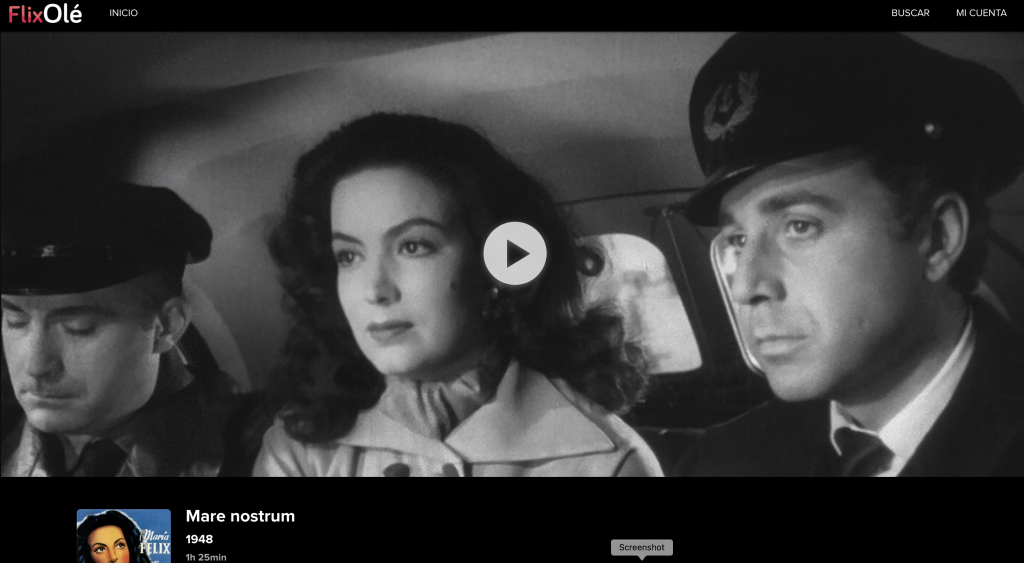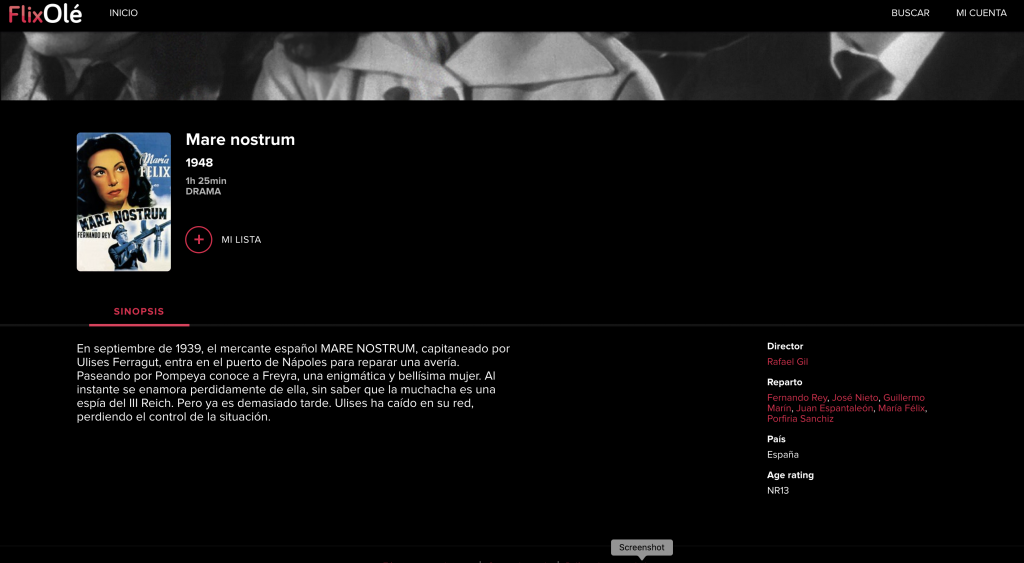Mare Nostrum* is a spy drama set in Naples, Italy at the outbreak of World War II. It was the first of three films María Félix starred in that were directed by Rafael Gil. It was adaptated from a novel by Vicente Blasco Ibáñez whose books inspired numerous film adaptations. This was the second adaptation of the novel. The previous version directed by Rex Ingram (1926) was set during a previous war, but was loosely based around the same plot.
I’m going to recount the plot using screenshots from the film.
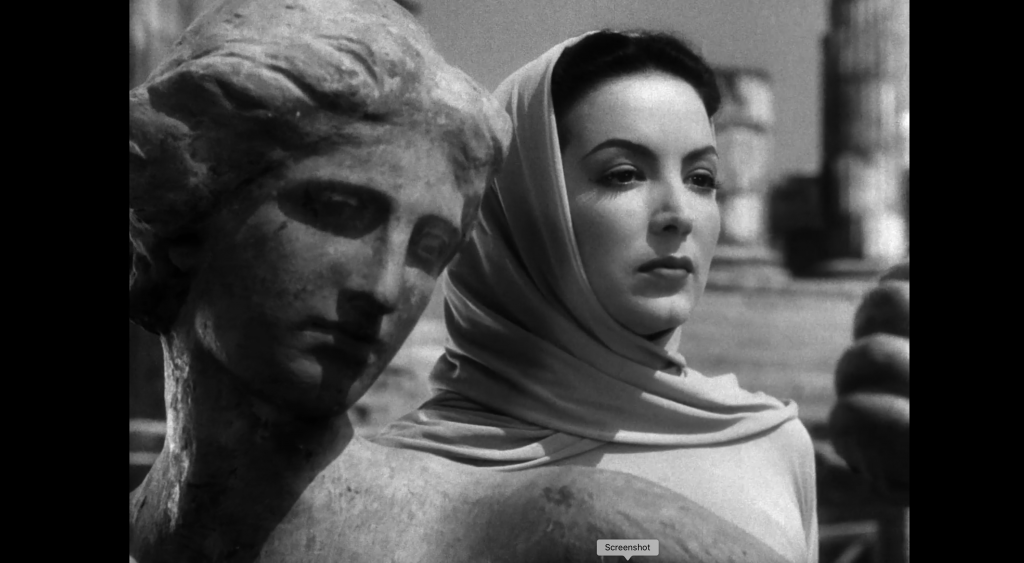
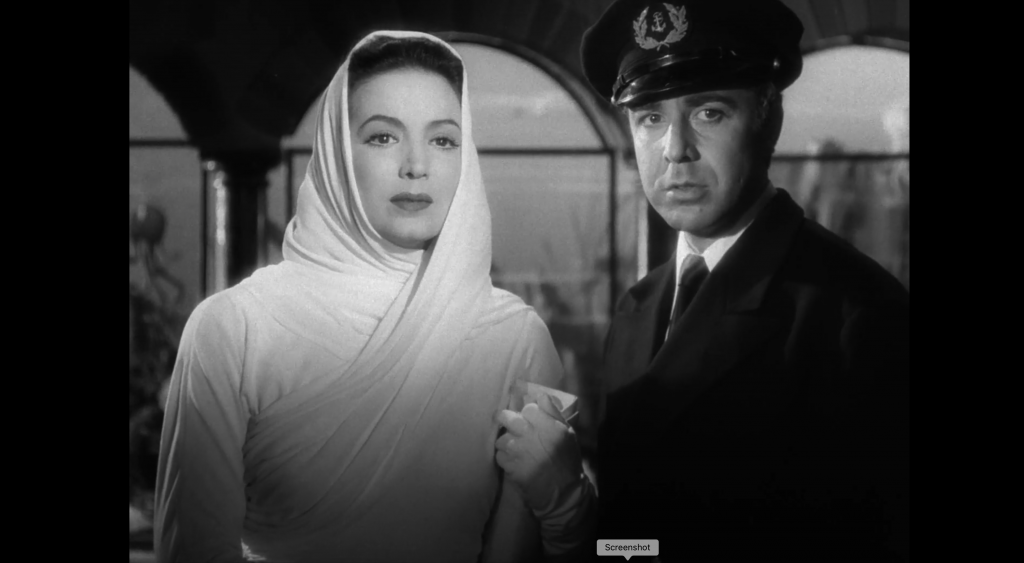
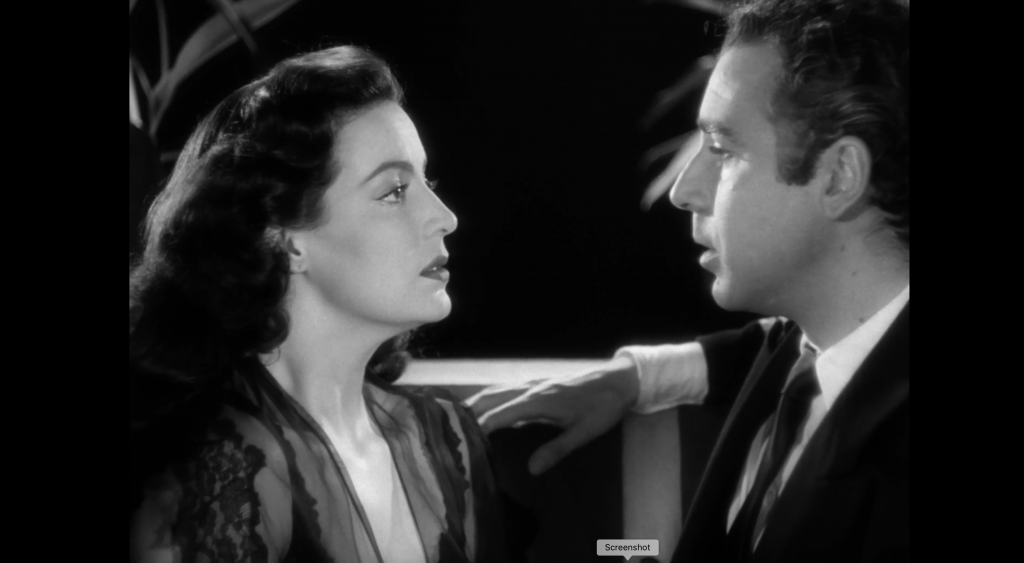
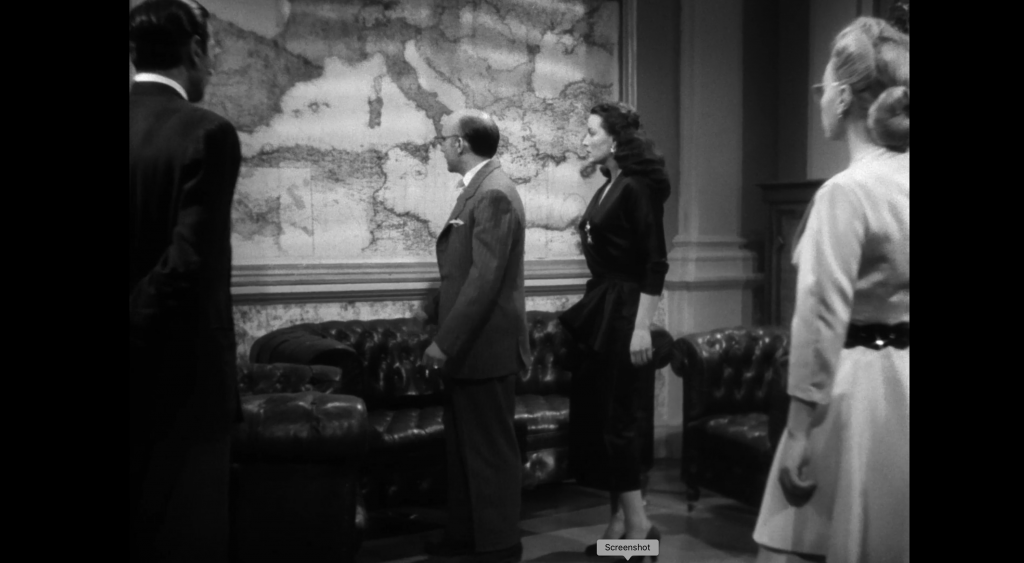

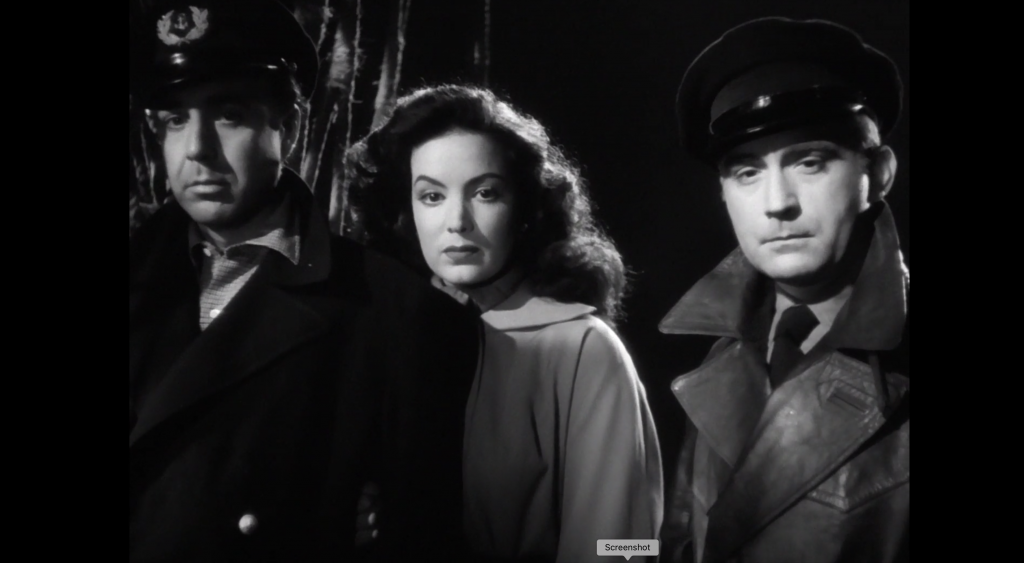
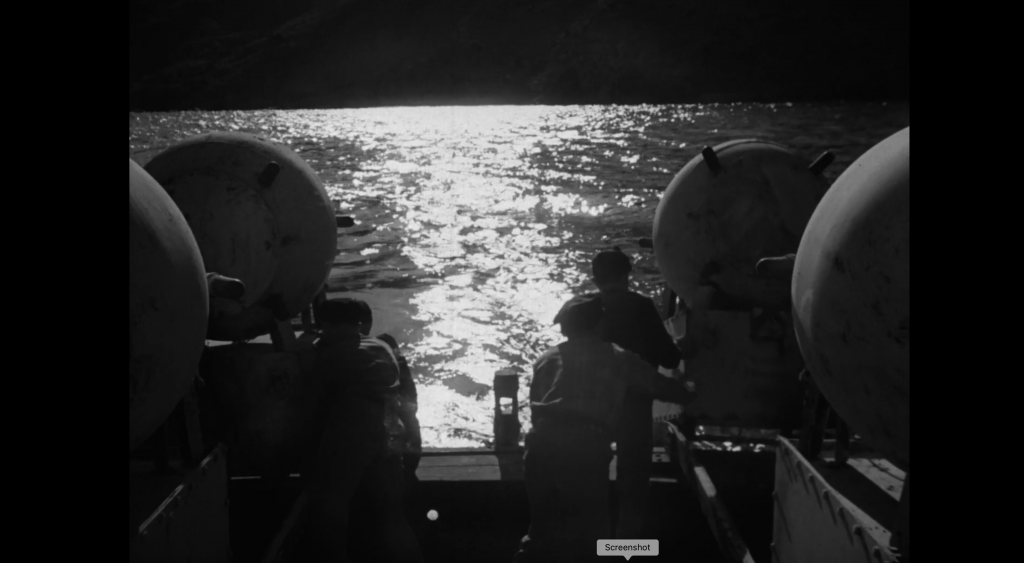
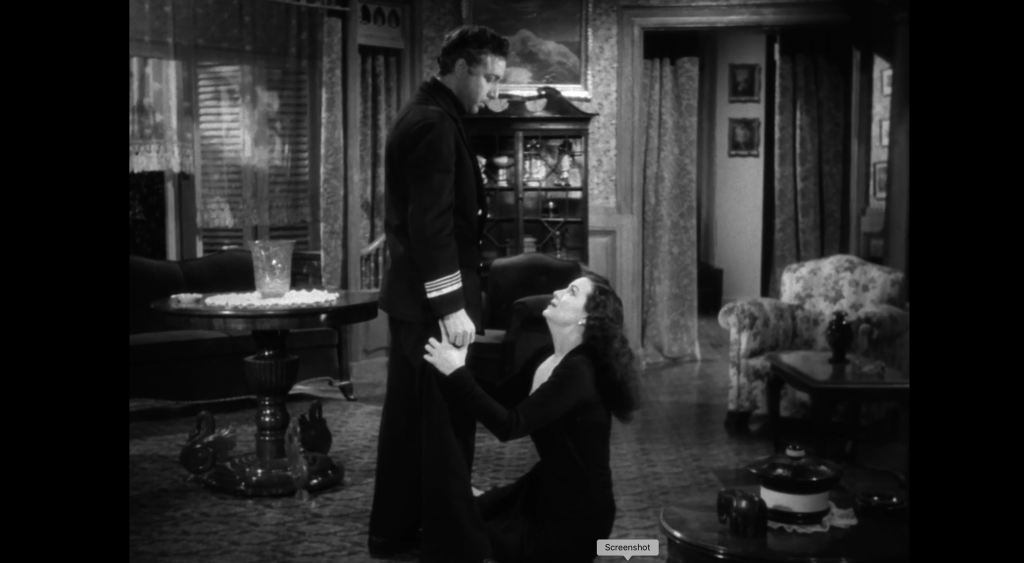
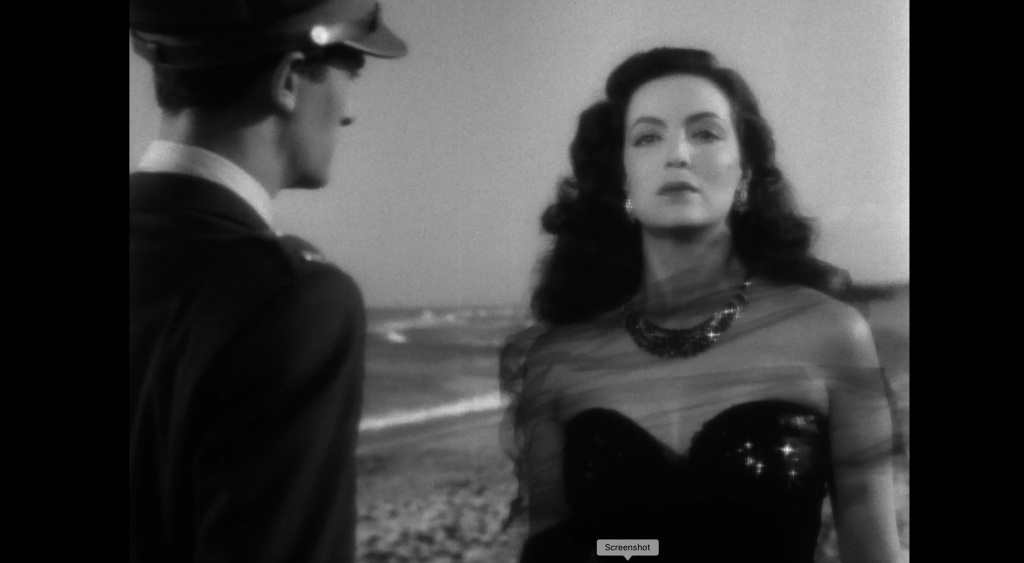
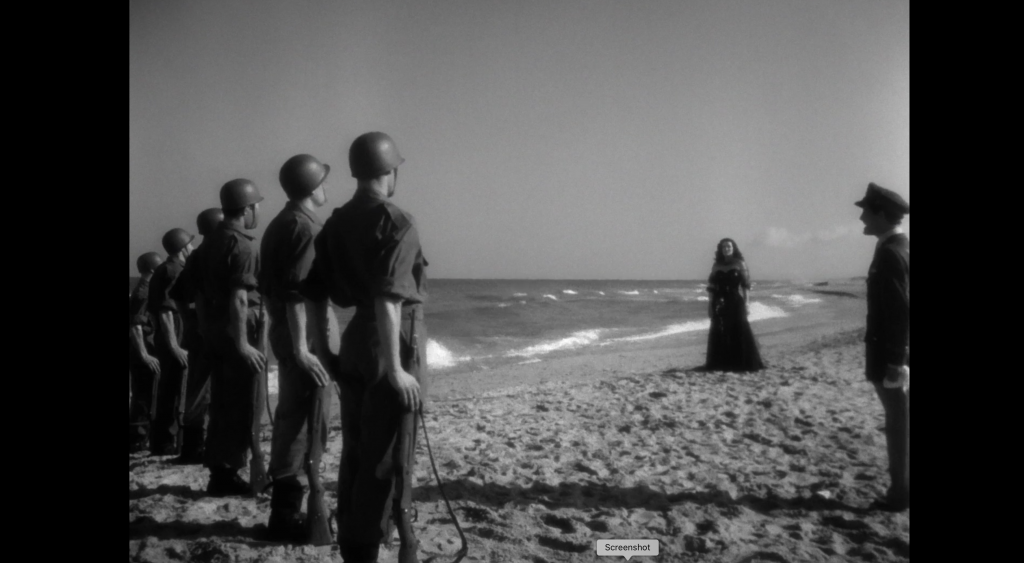

There are so many ambivalences in the film narrative. Ulises is prepared to betray his neutral country and help the Germans. Freya is a noble patriot (the word is used repeatedly) to the end. No mention or symbols of Nazi Germany are used in the film. This does more than appear to de-politicise the film so much as make it strange in a World War II film. More than Una mujer cualquiera (1949), this film reveals Gil’s politics and sympathies with Francoism.
As an aside, it was one of the few in which her character sings. She was not known for her singing talent. Ana María González performed the song which was dubbed in post-production.
This was Félix’s first film in Spain and received much acclaim on arrival from the public with her moves carefully tracked by the popular press (see, Taibo I 2004, 195). Spain was a major consumer of Mexican film and Félix was at the height of her fame at the time.
A look at a review of Ingram’s 1926 version in Sight and Sound suggests that the previous adaptation played up to the over-blown sexuality of the source text. In that review Fuller describes the novelist as having a “fear of monstrous female sexuality in his work […which] drew on the misogynistic cult in fin-de-siècle art and literature” (2014). In Gil’s version Freya and Ulises wrestle with similar conflicts. Ironically, his ambivalence about Spain’s neutrality in the war as well as the decision to cast Félix in this role allowed more space for a nuanced female character than were evidente in either the source text or Ingram’s versions.
Work Cited
Fuller, Graham. (2014), “Mare Nostrum”, Sight & Sound 24.11: 102
Taibo I, Paco Ignacio. (2004), María Félix: 47 pasos por el cine. Mexico: Ediciones B.
*I watched this on Flix Olé
